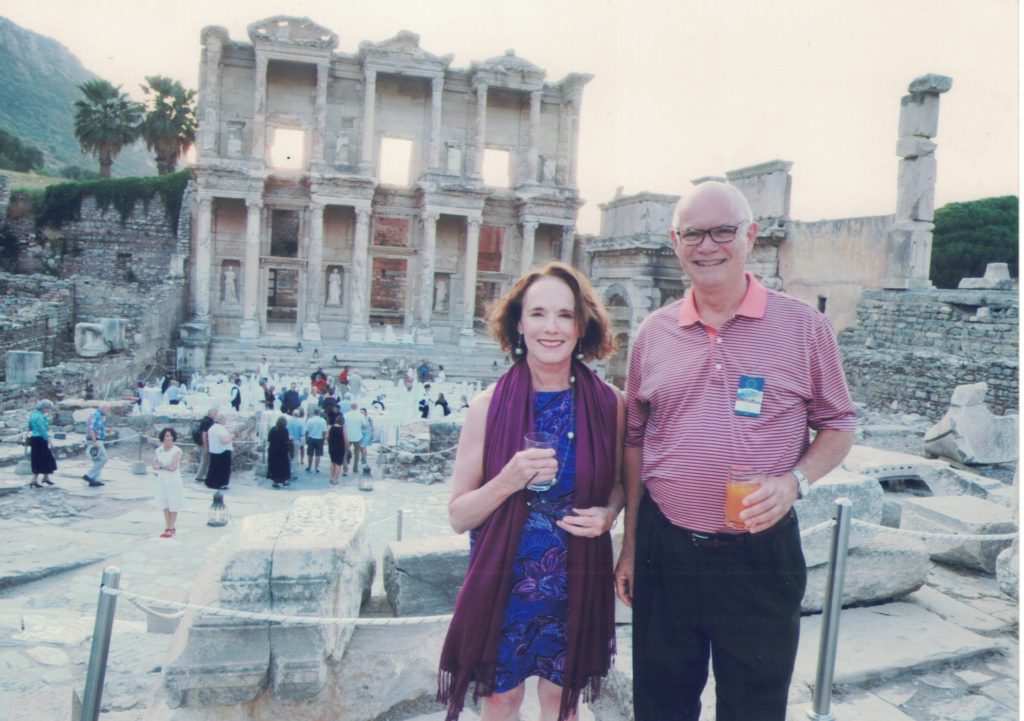 In her book The Defining Decade, psychologist Meg Jay describes an experiment in which researcher Laura Carstensen worked with twenty-year-olds to help them understand the importance of saving for retirement.
In her book The Defining Decade, psychologist Meg Jay describes an experiment in which researcher Laura Carstensen worked with twenty-year-olds to help them understand the importance of saving for retirement.
“Carstensen used virtual reality to help the subjects imagine their future selves. In one condition of her experiment, 25 subjects entered an immersive virtual reality environment and, in a virtual mirror, they saw digital representations of their current selves. In the other condition, 25 subjects entered the same virtual reality environment, but instead of seeing their current digital selves in the mirror, they saw an age-morphed version of their future selves. This second group saw what they will look like when they are old.
“After the subjects emerged from the virtual experiment, they were told to allocate money toward a hypothetical retirement savings account. The subjects who had seen their current selves in the mirror set aside payments averaging $73.90. Those who saw their future selves set aside more than twice that amount, payments averaging $178.10” [page 190].
This experiment speaks to a problem that psychologists call present bias. We inordinately favor the present and discount the future. We seldom try to imagine and give weight to, things that will happen in the future. It’s a human tendency that fuels addiction, procrastination, impatience, immediate gratification, poor planning, and other problems. We tend to grab immediate rewards and avoid immediate costs such that our future well-being is jeopardized.
- We spend most of our income instead of saving for retirement. [78 percent of Americans say they’re “extremely” or “somewhat” concerned about not having enough money for retirement.]
- While addictions may give us immediate gratification, we discount their long-term effect on our lives and relationships.
- Our eating habits are not influenced by a regard for our future health.
In Carstensen’s experiment she helped young adults visualize the fact that one day they would be elderly, and that influenced their current decisions. We should try to replicate that same exercise in our own lives. Take time to reflect on the final decades of your life (average life expectancy for Americans is 78.6 years) and consider how your current lifestyle and decisions will adversely or beneficially impact your future.
“Planning is bringing the future into the present so that you can do something about it now.” Alan Lakein
[reminder]What are your thoughts about this essay.[/reminder]

 Good communication is invaluable in all relationships and organizations. Without it, misunderstanding, friction, confusion, and passivity run amuck.
Good communication is invaluable in all relationships and organizations. Without it, misunderstanding, friction, confusion, and passivity run amuck. Benjamin West was just trying to be a good babysitter for his little sister Sally. While his mother was out, Benjamin found some bottles of colored ink and proceeded to paint Sally’s portrait. But by the time Mrs. West returned, ink blots stained the table, chairs, and floor. Benjamin’s mother surveyed the mess without a word until she saw the picture. Picking it up, she exclaimed, “Why, it’s Sally!” And she bent down and kissed her young son.
Benjamin West was just trying to be a good babysitter for his little sister Sally. While his mother was out, Benjamin found some bottles of colored ink and proceeded to paint Sally’s portrait. But by the time Mrs. West returned, ink blots stained the table, chairs, and floor. Benjamin’s mother surveyed the mess without a word until she saw the picture. Picking it up, she exclaimed, “Why, it’s Sally!” And she bent down and kissed her young son. For the past 11 years I’ve led groups of friends on annual, international trips. We’ve been to Paris, London, Europe, the Mediterranean, Baltic States, Russia, Israel, Peru, and North Africa. We’ve never had a malfunction or bad experience; just memorable, life-enhancing moments.
For the past 11 years I’ve led groups of friends on annual, international trips. We’ve been to Paris, London, Europe, the Mediterranean, Baltic States, Russia, Israel, Peru, and North Africa. We’ve never had a malfunction or bad experience; just memorable, life-enhancing moments.